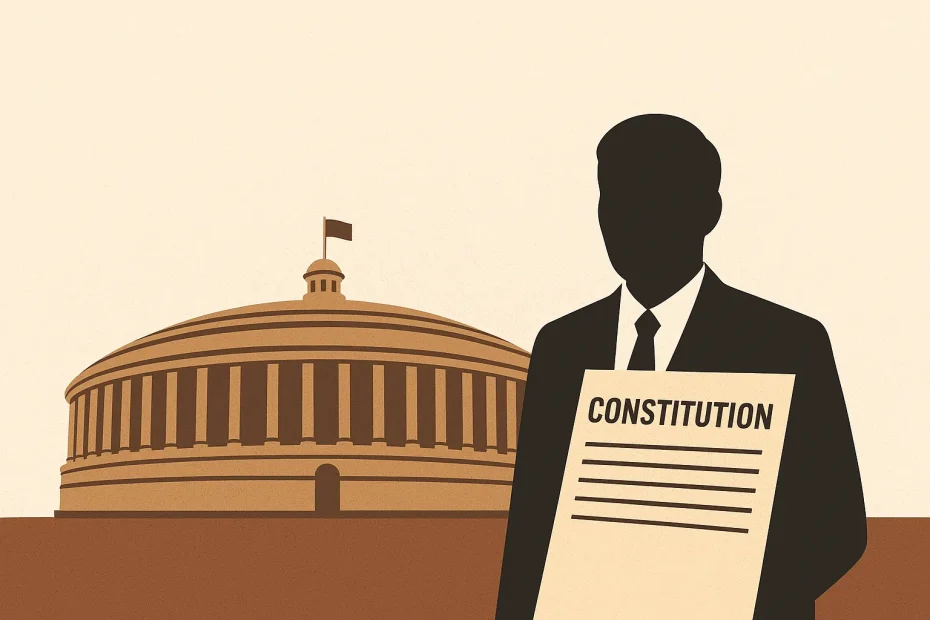In a landmark move, the Lok Sabha has referred the 130th Constitution (Amendment) Bill, 2025, to a Joint Parliamentary Committee (JPC). The Bill aims to strengthen public trust in political institutions by ensuring that officials automatically remove those detained in serious criminal matters from office. Importantly, the provision does not permanently bar a Minister from office — they may reappoint them once a court releases them, striking a balance between accountability and fairness.
This proposal seeks to insert new clauses in Article 75 (Union Council of Ministers), Article 164 (State Council of Ministers), and Article 239AA (special provisions for the National Capital Territory of Delhi). Corresponding amendments have also been introduced in the Government of Union Territories Act, 1963, and the Jammu and Kashmir Reorganization Act, 2019. The underlying principle is clear: no person accused of grave offences should continue in high public office when their integrity is under question.
The Rationale Behind the Bill
The Statement of Objects and Reasons underscores that a Minister must remain “beyond any ray of suspicion” to uphold constitutional morality and good governance. The Bill aims to strengthen public trust in political institutions by ensuring that officials automatically remove those detained in serious criminal matters from office. Importantly, the provision does not permanently bar a Minister from office — they may reappoint them once they are released, striking a balance between accountability and fairness.
Political Reactions and Context
The Bill’s introduction met stiff resistance from several opposition leaders including Asaduddin Owaisi, Manish Tewari, KC Venugopal, and Dharmendra Yadav, who raised concerns about its potential misuse in politically motivated cases. Despite this, the Bill was introduced and referred to the JPC after a division vote.
The timing of the Bill is noteworthy. In recent years, several instances of Ministers have been jailed in India on corruption and money laundering charges. Former Delhi Chief Minister Arvind Kejriwal, Jharkhand CM Hemant Soren, and Tamil Nadu’s V. Senthil Balaji are just a few names that highlight the uneasy intersection of criminal law and political power. In some cases, authorities reinstated Ministers after their release, raising serious questions about constitutional propriety and political ethics.
Constitutional Morality and Democratic Trust
The Supreme Court itself has often stressed the importance of constitutional morality in governance. The infamous reinstatement of Senthil Balaji, despite his incarceration, drew sharp criticism from the apex court, which bluntly asked him to “choose between liberty and office.” The 130th Amendment Bill echoes this judicial sentiment by formalising a system that prioritises integrity in governance.
A Step in the Right Direction But With Caveats
While the Bill is undoubtedly a step towards cleansing politics, its success will hinge on safeguards against misuse India’s political climate does not escape vendetta-driven prosecutions, and we cannot ignore the possibility that individuals may use false or exaggerated cases to dislodge Ministers. Hence, robust judicial oversight and transparent procedures will be essential to prevent abuse of this constitutional tool.
Conclusion
The 130th Constitution (Amendment) Bill, 2025, may mark a turning point in India’s journey towards cleaner politics. By demanding higher ethical standards from those in power, it seeks to reinforce the idea that public office is a matter of trust, not entitlement. If implemented with adequate safeguards, this amendment could strengthen democracy by ensuring that the law applies equally — whether to the common citizen or the highest political executive.
